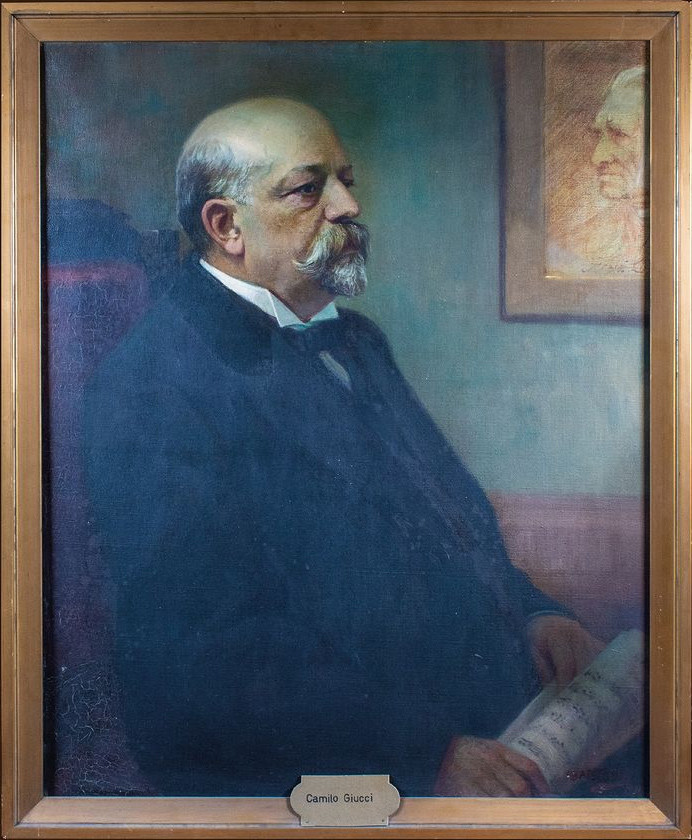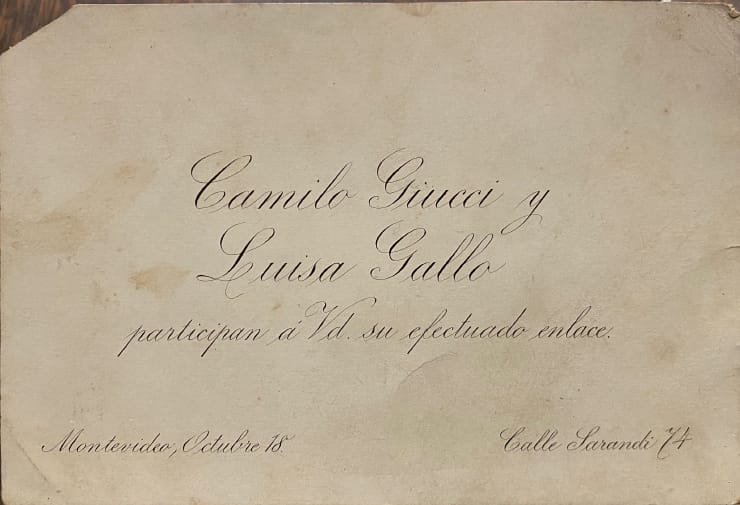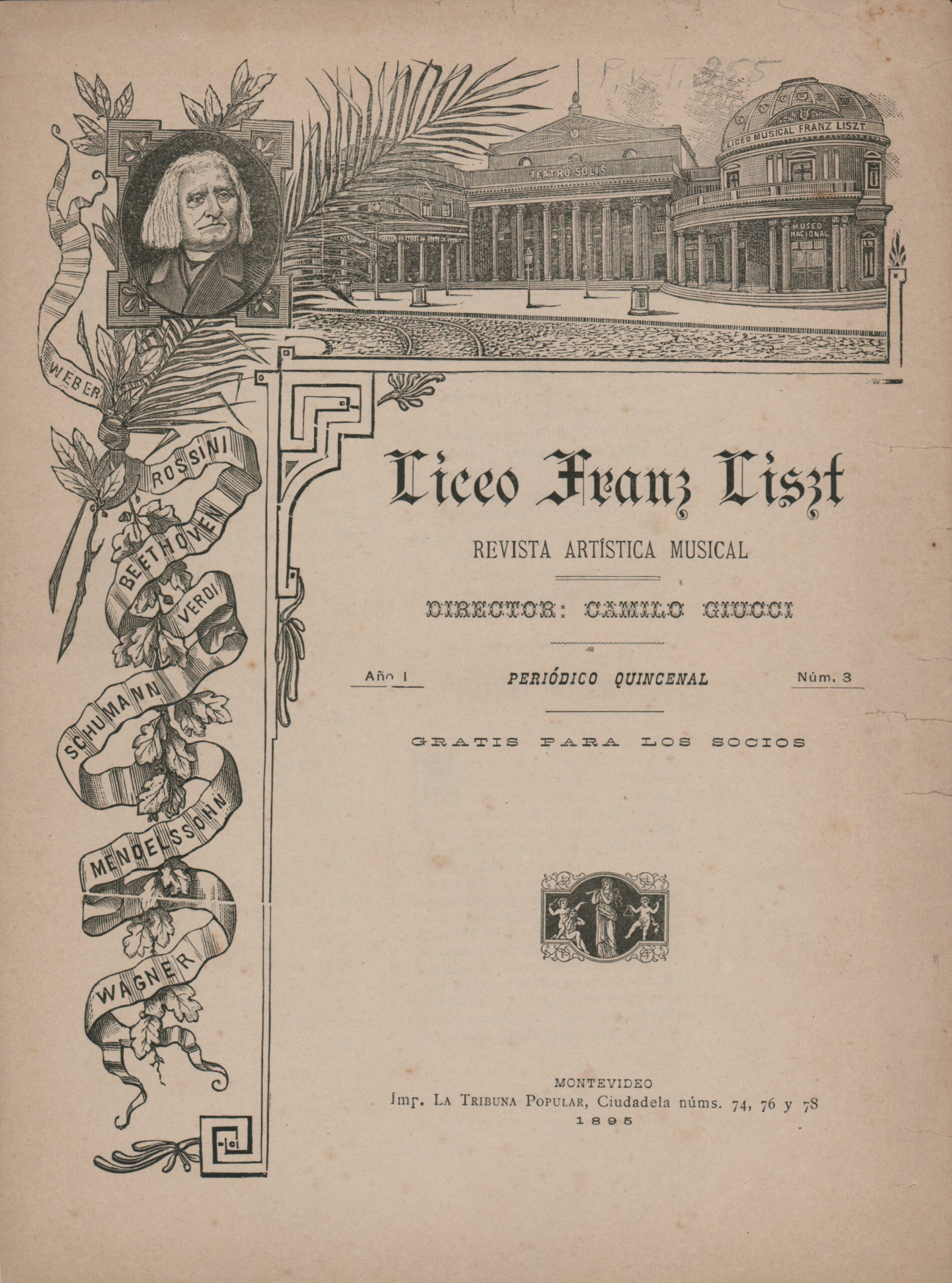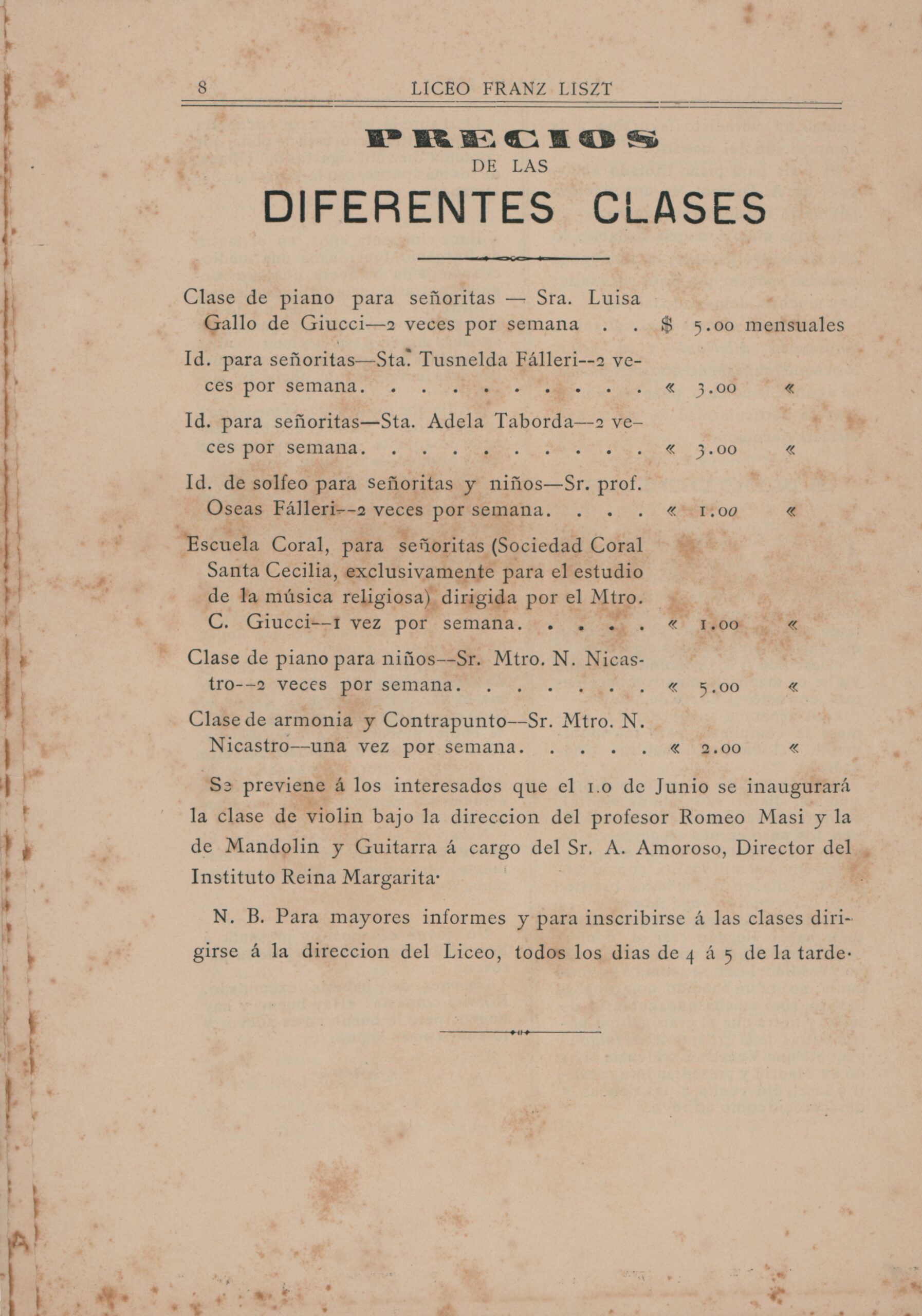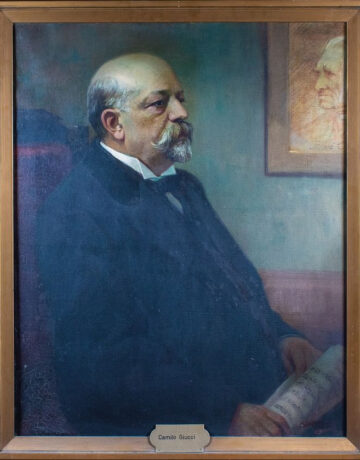Camilo Giucci was an Italian pianist, composer, and teacher who spent part of his life and artistic career in Uruguay, making a lasting impact on the Uruguayan musical environment.
The Giucci Family
Camilo Giucci
Camilo Giucci was an Italian pianist, composer, and teacher who spent part of his life and artistic career in Uruguay, making a lasting impact on the Uruguayan musical environment. He was born in Rome on April 13, 1850. His father, Gaetano Giucci, was an intellectual and writer who published several works on religious history. Among them are several volumes dedicated to the analysis of the iconography of religious and military orders, as well as biographies of Popes Pius VII, Leo XII and Gregory XVI. He also wrote poetic works, in the form of epigrams. Camilo’s mother, Giuditta di Vincenzio Rotolini, was a professor of medicine.
Camilo became interested in music at the age of 6, when he started playing piano in his house. Then, he studied with his uncle. In 1862, he met the Hungarian pianist and composer Franz Liszt, who took him on as a disciple. In 1866, he traveled to study harmony and counterpoint at the Munich Conservatory, where his piano teacher was Hans von Bülow, a prominent German pianist and composer who was the director of the aforementioned Conservatory. The correspondence between Liszt and Bülow highlights some of the difficulties that Camilo experienced during his classes, while also describing what Bülow considered Camilo’s almost religious interest in learning. At that time, Munich was one of the centers of European musical life, so he was able to come into contact with some of the most important musicians of the time. In an autobiographical text, Camilo recalls an evening in homage to Liszt in 1869, which was attended by Anton Rubinstein, Camille Saint-Saëns, Carl Baermann, and Hans von Bülow, among others. He stated that he was completely moved to be in the presence of such artistic greatness.
Starting in 1869, he performed concerts in different European cities. For example, in March 1873 he gave a concert in Constantinople that was praised by the Gazetta musicale di Milano because of the sweetness of sound and his prodigious ability. Between 1873 and 1885, his musical career was marked by a series of tours in Europe and America. During this period, which he called “artistic pilgrimages,” he spent five months in Paris every year.
Between 1884 and 1885, Camilo performed in Brazil, Argentina and Uruguay. During his stay in Montevideo, he met pianist Luisa Gallo; together, they performed a two-piano concert at La Lira Conservatory. At the end of 1885, Camilo and Luisa got married. They had nine children, two of whom died at an early age. Camilo, Luisa, Mario, Carlos, and Esther were involved in various ways in music creation and instruction. Julio César worked in the financial administration of the Conservatory of Music, while Cecilia worked in the kitchen.
After his marriage, Camilo settled permanently in Montevideo, and began to consolidate his reputation as a pianist, composer, and teacher in Montevideo. During these years, he performed repeatedly in various venues, while also gathering his first disciples, with whom he performed in concerts. As an example of Camilo’s reputation, in 1887 the magazine Montevideo Musical stated that he was “an accomplished pianist, who performed with exceptional intelligence, deep artistic sensitivity, remarkable expressiveness and tonal richness.”
In 1895, Camilo founded the Franz Liszt Conservatory of Music, an institution dedicated to music instruction, of which he was director until he passed away. The first headquarters of the Franz Liszt Conservatory of Music was located in the west wing of the Teatro Solís. After Camilo passed away in 1913, it was moved to a building located at 1476 Treinta y Tres Street, where it stayed for a short time. Subsequently, it was moved to a building across the street at 1479 Treinta y Tres Street, where it remained until the 1970s. As Camilo explained in a magazine published by the Conservatory of Music, the “main objective of this Conservatory of Music will be the music instruction of all those who wish to belong to it.” To this end, a teaching staff was created that included important musicians of the time, in addition to Camilo and Luisa. The Conservatory of Music became a highly relevant cultural and social space, hosting concerts and artistic evenings. At the time of its opening, Camilo stated that the goal was to offer “three major concerts and four literary and musical sessions” annually. During Camilo’s tenure, numerous concerts were organized, in which renowned Uruguayan and foreign musicians performed, such as Félix Lebano, Pietro Melani, José Vianna da Motta, Bernardo Moreira de Sá and Virgilio Scarabelli, among others.
In addition to his management duties at the Conservatory of Music, Camilo played a prominent role as a piano teacher. In 1911, he wrote to his son Camilo, who was studying in Europe, “This year, 130 piano students took their exams! It’s quite a lot; and I guarantee you that to prepare them I need a lot of patience.” Among his most outstanding disciples was the composer César Cortinas, who began studying with Camilo at the age of 15, in 1905, and later continued his studies in Europe.
In 1895, the same year he founded the Conservatory of Music, Camilo founded the Sociedad Coral Santa Cecilia, dedicated to the teaching of religious choral music. In the third issue of the Conservatory’s publication, it was noted that “the increasing number of young ladies already enrolled in this special class, together with their good will, really flatter us and also let us foresee that our efforts will be crowned with success.”
Camilo composed a series of piano works, some of which premiered in Europe, while others correspond to the period in which he lived in Uruguay. It should also be noted that, after he passed away, César Cortinas dedicated a work entitled “Elegía a la memoria de Camilo Giucci” (Elegy to the memory of Camilo Giucci) to him.
Camilo passed away on December 5, 1913. His passing had a great impact on the Uruguayan musical and cultural environment. His funeral was attended by his students and prominent individuals of the time. Additionally, César Cortinas and Virgilio Scarabelli gave speeches.
The Giucci Family
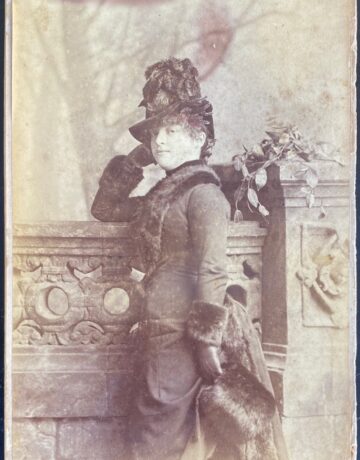
Luisa Gallo de Giucci
Luisa Gallo was a Uruguayan pianist and teacher.
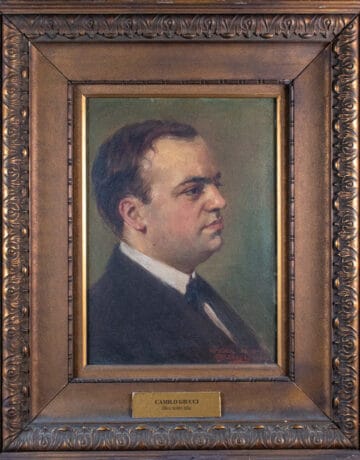
Camilo Giucci (son)
Camilo Giucci Gallo was a Uruguayan violinist and teacher.

